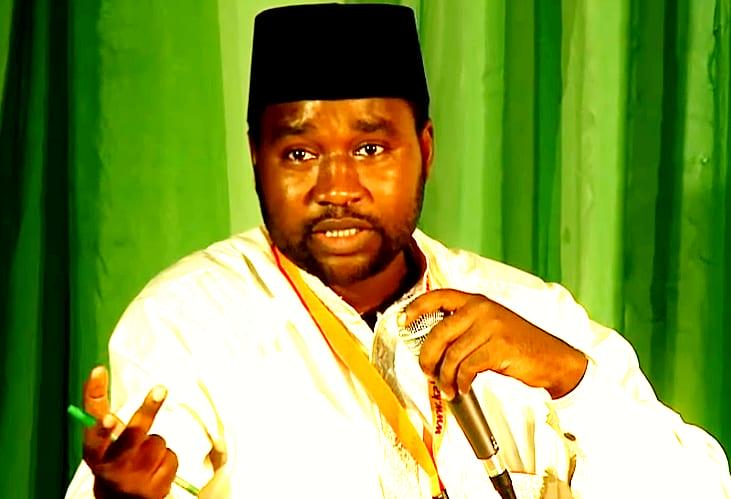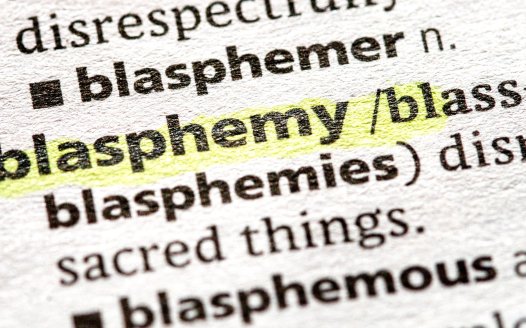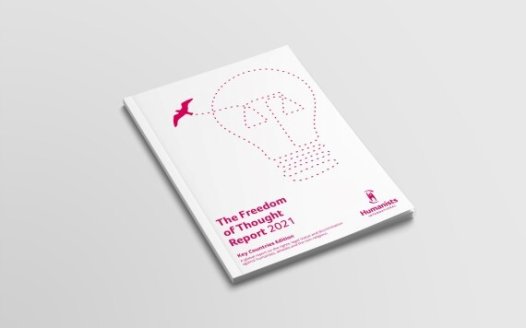Don’t sacrifice the principle of universal human rights to religious leaders
Posted: Mon, 22nd Nov 2021 by Megan Manson
A recent report on state-sanctioned killings of 'blasphemers' and 'apostates' suggests re-interpreting Islam as a solution rather than promoting universal human rights. Megan Manson argues this is the wrong approach.
Last month Monash University released a report highlighting the appalling atrocities committed due to 'blasphemy' laws.
'Killing in the name of God: State-sanctioned violations of religious freedom' exams the twelve countries where 'apostasy' and/or 'blasphemy' are punishable by death*. Eleven of those countries have Islam as the state religion. The exception, Nigeria, has no state religion but the twelve Nigerian states in which blasphemy is punishable by death operate a sharia law system in parallel to secular courts. The death penalty is justified through statements in Islamic texts calling for those who change religion to be killed.
While actual executions for these 'crimes' are rare, the report explains how the death penalty for religious offences contributes to extrajudicial killings and killings by civilians and extremist groups.
For example, Pakistan pursues high volumes of prosecutions for blasphemy, but it has never conducted a judicial execution on this basis. The report suggested the combination of taking such a strict stance against blasphemy and failing to carry out death sentences encourages mobs and vigilantes to do the dirty work on behalf of the state. One victim of this approach was Tahir Naseem, an Ahmadi Muslim who was shot dead while standing trial for blasphemy last year.
The report also highlights how trumped-up charges of political and security-related offences are used to convict and execute religious minorities and dissidents. By adopting Islam as the state religion, the government can frame acts against religion as acts against the state.
'Killing in the name of God' is an important report and must be commended for raising the plight of those targeted by blasphemy and apostasy laws around the world. It does not shy away from explicitly demonstrating the link between Islamic theology, Islamic theocracy, and state-sanctioned killings.
What's less encouraging are the report's suggestions for ending these killings.
It says: "rather than framing advocacy in the language of human rights, a better alternative would be to work with pre-existing normative structure, such as promoting a contemporary understanding of Islam that rejects the retention of the death penalty".
The report advocates the involvement of faith leaders in this approach, stating that their role in campaigning for human rights "cannot be understated" and that as "respected figureheads and custodians of religion, faith leaders may be better positioned to inspire respect for human rights than those perceived as foreign."
The report concludes: "The Qur'an embraces religious freedom, and as we have shown, the abolition of the death penalty for religious offences is entirely compatible with its teachings".
No doubt the authors believe shoehorning human rights into an Islamic framework, rather than promoting human rights as a universal for all regardless of religion or belief, would be more palatable for leaders in theocracies such as Iran, which has challenged the Universal Declaration of Human Rights as "a Western concept of Judeo-Christian origin."
But by playing into these arguments rather than challenging them, 'Killing in the name of God' ignores the likely undesirable consequences of this approach.
For example, there are plenty of individuals and organisations in these countries who embrace the concept of universal human rights. These people are no more 'foreigners' in their countries than the Islamic fundamentalists, but suggesting their values are 'foreign' adds to their alienation.
Take Leo Igwe, founder of the Humanist Association of Nigeria. Igwe tirelessly campaigns on a wide variety of issues, including combatting 'witchcraft' persecution, defending LGBT+ rights, and speaking out for religious minorities. One of Igwe's most recent projects is to introduce lessons on critical thinking into Nigeria's schools.
In between all this, Igwe is fighting to get fellow campaigner Mubarak Bala (pictured) released from his imprisonment in connection with 'blasphemous' Facebook posts. This is not the first time Bala lost his freedom for expressing views that differ from Islam. In 2014 he was confined to a psychiatric hospital for not believing in God.
It's hard to see how the Islamocentric approach advocated by 'Killing in the name of God' can help Nigerians like Igwe and Bala. It would surely reinforce the divide between Nigerian Muslims and atheists – and the power the former has over the latter.
There are many more individuals in these countries who value the concept of human rights for all. The reason why we may not always hear their voices is obvious to anyone who's read the report – anyone who says anything that could be deemed in any way against Islam risks their very life. Surely the solution is to empower the voices of these grassroots activists, rather than trying to appeal to religious leaders who oppress them with watered-down, sharia-compliant versions of 'rights'?
Of course, human rights organisations have a role to play in ensuring those promoting more liberal interpretations of Islam which reject the death penalty, and even better reject the criminalisation of 'blasphemy' and apostasy' altogether, have the freedom to express this. But this does not require us to abandon universal human rights and secular democracy, or those striving to promote both in their own countries.
'Killing in the name of God' is an excellent report, and recommended reading for all those concerned with ending the death penalty for blasphemy and apostasy – and indeed the criminalisation of these concepts. But we should be extremely wary of any solution that elevates religion and religious leaders over universal human rights. Instead of dancing to the tune of theocrats, let's listen to those oppressed by them and let them be heard.
*Those countries are: Afghanistan, Brunei, Iran, Maldives, Mauritania, Nigeria, Pakistan, Qatar, Saudi Arabia, Somalia, United Arab Emirates and Yemen.
Picture via Humanists International
What the NSS stands for
The Secular Charter outlines 10 principles that guide us as we campaign for a secular democracy which safeguards all citizens' rights to freedom of and from religion.









